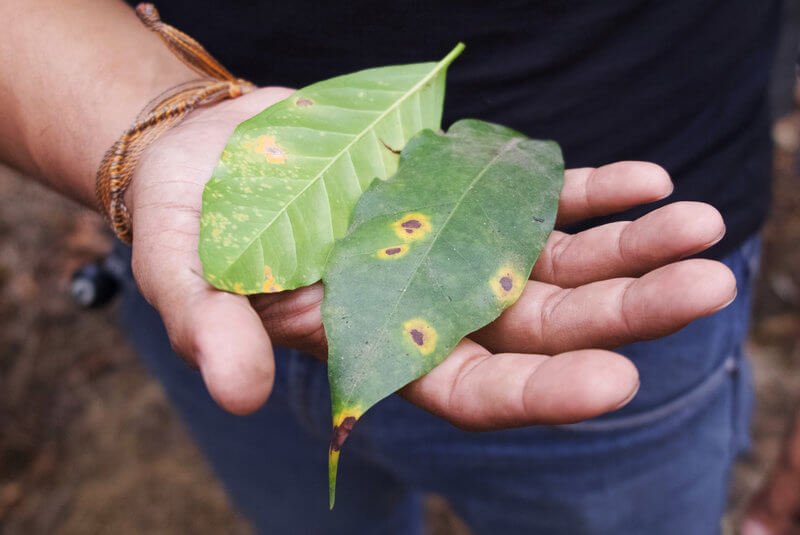In the midst of the coronavirus pandemic, talking about a plant disease might seem frivolous. But around the world, 100 million people draw dignity and income from coffee, one of the world’s most traded agricultural products. Coffee is a lifeline for tiny towns and small farmers in areas too thin-soiled or forested or steep to grow much else.
As farmers run out of cash to combat coffee-leaf rust—and climate change diminishes the likelihood of relocating plants to safer ground—scientists are trying to blunt the power of the disease. But their efforts to rebreed plants and retrain farmers are up against a long history of ruin: The first caution about the disease, and the first proof of its destructive force, dates back more than 150 years.
It can take 25 years to crossbreed coffee plants into a new type, and to test-grow the new plant through repeated generations to make sure it breeds true. The farmers in places where rust is advancing don’t have that kind of time. To accelerate replacement, World Coffee Research has been supporting development of what are called F1 hybrids, first-generation crosses from genetically distinct parents that can be ready for planting in fields within 10 years.































